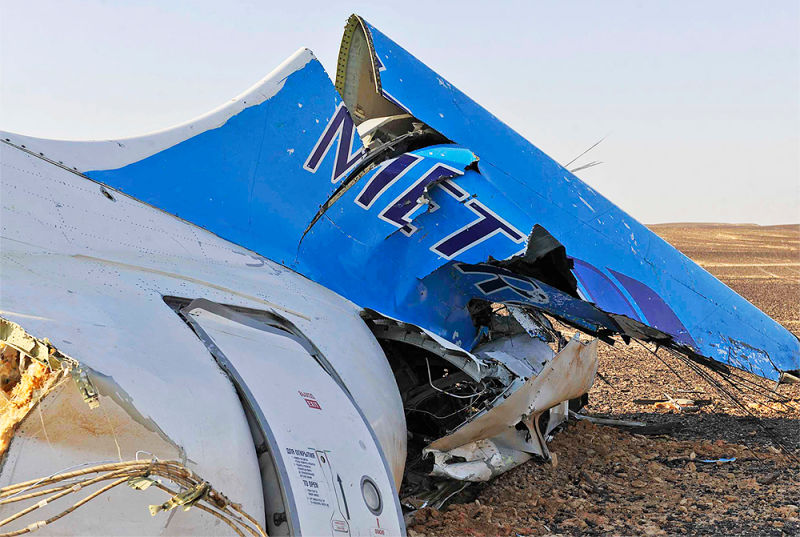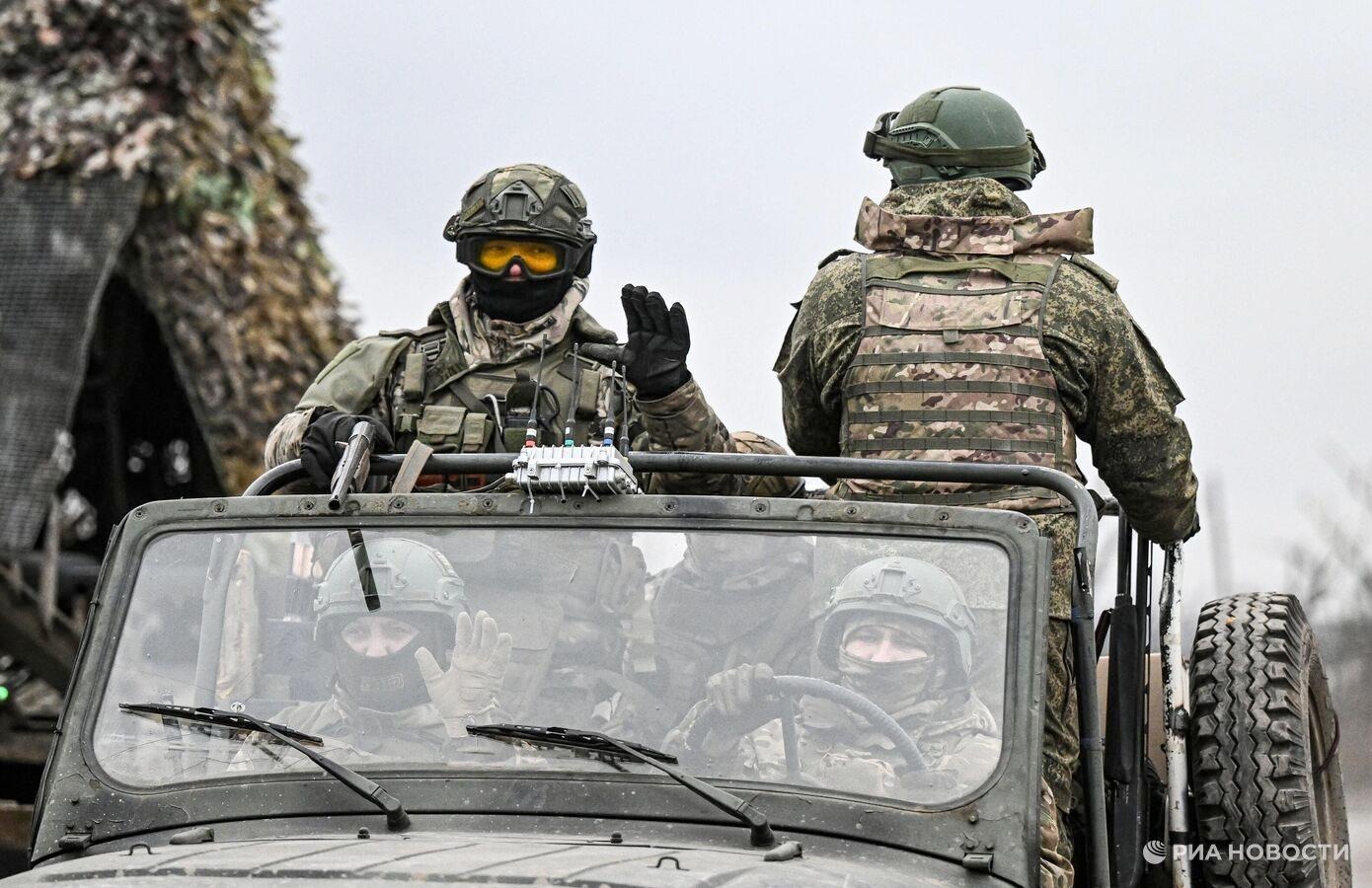
Metrojet Flight 9268 Crash Could Undermine Russian Public Support for Syria Bombing Campaign
Metrojet Flight 9268 Crash Could Undermine Russian Public Support for Syria Bombing Campaign
On October 31, a Russian charter passenger jet, Airbus A321 Metrojet Flight 9268, disintegrated in midair some 23 minutes after takeoff from the Egyptian resort of Sharm el-Sheikh to St. Petersburg, Russia, killing all 224 people on board, mostly Russian tourists. Metrojet Flight 9268 crashed in the mountainous Sinai dessert. The flight recorders or “black boxes” have been recovered, the plane debris is being collected, and investigators from Egypt, Russia, Ireland (the country of registration) and France (Airbus assembly location) are involved in the ongoing investigation. The Egyptian authorities have insisted there was no foul play involved in the Russian airliner’s crash and deny as false claims of responsibility by Islamic State–affiliated Salafi extremists operating in the Sinai (Interfax, November 4).
The Russian press has quoted Egyptian President Abdel Fattah el-Sisi: “Any propaganda reports that the jet [Flight 9268] was somehow shot down by terrorists are aimed at destabilizing the region and tarnishing Egypt’s image” (Rossiyskaya Gazeta, November 4). If there was a breach of security at Sharm el-Sheikh International Airport and an explosive device was somehow smuggled aboard Flight 9268, Egypt’s tourist industry and economy will suffer. Already, an increasing number of international air companies are diverting flights from overflying the Sinai. Egyptian authorities are in charge of the Metrojet Flight 9268 crash investigation, and they seem to have a vested interest in declaring the plane’s downing a result of some technical mishap or human negligence. Egypt wishes to avoid responsibility and a resulting crisis in its vital tourist industry.
The Russian authorities also appear be inclined to see the Metrojet Flight 9268 crash written off as the result of a technical calamity or human error. This could end the Metrojet air company, also known as Kogalymavia. Metrojet is relatively small and privately owned, and there have previously been calls from Duma deputies of the ruling United Russia party to aggregate all Russian air transportation to just “two or three” passenger companies. The main benefactor of such a consolidation would be Russia’s biggest air passenger carrier—the state-owned Aeroflot. On November 5, Kremlin spokesperson Dmitry Peskov denounced as “speculation” the decision by the British government to stop all passenger air flights to Sharm el-Sheikh because of the possibility of a security breach that resulted in an explosive devise being smuggled aboard Metrojet Flight 9268. Peskov supported the Egyptian authorities that denounced the ban on passenger flights to Sharm el-Sheikh as premature and insisted that Russian airlines (including Metrojet) will continue to fly to Egypt and to Sharm el-Sheikh (Interfax, November 5). Earlier, Peskov stated: “There is no connection between the Russian bombing operation in Syria and the Metrojet Flight 9268 crash” (Interfax, November 3).
President el-Sisi has developed good personal relations with President Vladimir Putin. As the Russian air campaign in Syria continues at full pace, keeping cordial relations with Egypt is becoming increasingly essential. In Syria, Russia is bombing the predominantly Sunni Arab opposition fighters in support of Shia-dominated and Iran-supported forces loyal to Syrian President Bashar al-Assad, including Hezbollah. Continued good relations with Egypt—the most populated Sunni Arab nation in the Middle East—gives the Kremlin a plausible argument to deny it has decisively taken a side in the Shia-Sunni grand standoff that has divided the Muslim world.
According to a recent report published by the independent Levada-Tsentr pollster, the majority of Russians (54 percent) support the air campaign in Syria, over 60 percent support shipping arms to al-Assad and some 70 percent believe the air campaign in Syria is effective. But a vast majority (66 percent) are against sending the Russian army to fight on the ground in Syria. Some 40 percent of Russians fear the Syria campaign may deflect budgetary resources from solving “important social and economic problems in Russia” and that Russians maybe killed in action in Syria or become victims of terrorist attacks. Some 59 percent do not want to see any Syrian refugees in Russia (Interfax, October 29).
Public support of the Syria bombing campaign is not completely solid: Russians support bombing that seems relatively inexpensive and without casualties and that snubs the United States. But there is little genuine compassion with al-Assad or the Syrians in general. Losses in combat and terrorist attacks could change public perception, however. Of course, Russia has an authoritarian regime and crooked elections, but the Kremlin is sensitive to results of public opinion polls; thus, policies can be modified if they are genuinely unpopular despite propaganda efforts by state-controlled TV. If Islamic State terrorists did indeed hit back by destroying a Russian passenger jet over Sinai, this could undermine public support for the Syrian war effort. Therefore, Moscow seems ready to support the Egyptians in denying any terrorist foul play in the downing of Metrojet Flight 9268. As a result, Russia is also possibly putting its own citizens in harm’s way by continuing to allow tourist air traffic to Sharm el-Sheikh as long as the official Egyptian-led investigation does not definitely declare there was a terrorist attack.
Of course, passenger jet crash investigations could take months or years to complete, giving Moscow and Cairo ample time to continue to deny terrorist foul play. But Irish and French officials are involved in the investigation and they may not take kindly to Russian and Egyptian efforts to doctor the results. The version projected by the Egyptians—that a regularly serviced A321 Airbus jet certified for international passenger travel could suddenly fully disintegrate in midair without any prior warning due to an unforeseen technical mishap—puts into question existing international passenger safety procedures as well as the safety of all Airbus-made jets. This approach may be worse for the air passenger industry than a terrorist bomb attack. A possible conflict of interests between different parties taking part in the investigation could result in information leaks from all sides, deeming a comprehensive cover up virtually impossible.
Putin, after some delay, personally expressed his condolences to the Metrojet Flight 9268 victims and added: “We will be fighting terrorism in Syria or anywhere—no one will ever be able to terrify the Russian people” (Kremlin.ru, November 3). Apparently, Putin may be bracing to publicly face the possibility that Metrojet Flight 9268 was, indeed, the victim of a terrorist attack by the Islamic State.


